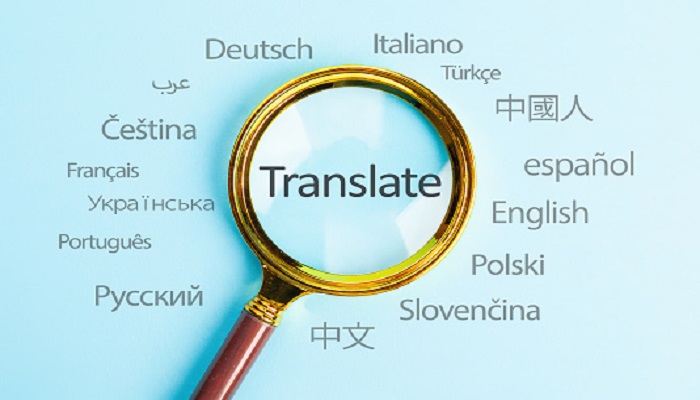Due to globalization, translation has become an integral aspect of corporate strategies across all industries. This variety shows that there are many different types of translation, each with unique practices and requirements. Despite these variations, they all serve the same function of promoting cross-language communication.
Most translators specialize in a single field of translation, giving their clients access to the knowledge and experience necessary for the most satisfactory outcomes. They deal with anything from legal paperwork and business contracts to movies, artwork, and poetry.
The two primary translations are those relating to business and those unrelated to business. However, some translations sort of fit into both categories.
1. Literary Translation –
The name tells you what it is about—literary translations of plays, stories, novels, and poems—considering that a literary translation offers so much more than simply transferring the meaning and context of the target language from the source language, frequently regarded as the highest kind of translation. Translating a work’s humor, moods, emotions, and other delicate characteristics entails considering the proper cultural quirks.
For all types of documents, including business, financial, technical manuals, academic papers, and verified translations, Translations.co.uk offers translation services. The UK’s Best Translation Services
We provide accredited and experienced translation services. Our qualified translators can translate over a hundred languages into technical, legal, business, and medical documents. Our translation company complies with all instructions provided by clients. Receive excellent translations in one or more languages.
2. Software Localization
The user interface is the primary component of software localization, but it does not stop there. Included are error messages, system messages, help files, and other details. It is necessary to once more adapt the information to the local (target) culture.
Having the software support multiple languages and enabling the user to translate the page into a language of their choice would make more sense than having the corporation develop numerous websites, which might cost a ton of money.
3. Commercial Translation
The type of translation known as “commercial translation” calls for translators with the particular knowledge, such as familiarity with business jargon and the business industry.
Business correspondence, reports, solicitation documents, financial statements, memos, and other texts of this nature may be included in the translation of commercial documents. There might occasionally be a crossover with legal translation if the firm works with legal documents.
Read also: essentials hoodie.
4. Legal Translation
Legal translation, which involves translating birth and marriage certificates, contracts, agreements, treaties, memoranda, wills, and other legal documents, is among the most challenging.
The many underlying contexts of the documents, as well as the culturally and political-legal contexts of the two regions or nations for which they are intended, must be understood by a professional translation. The next step would be to interpret it so the target audience could quickly grasp it.
You might need to engage legal experts to verify that your legal translation is 100% error-free, even if you are well-versed in the cultures and other areas and extremely good at translating.
5. Technical Translation
Technical translation covers all technical content that needs to be translated, such as user guides, manuals, online help text, instruction booklets, training materials, films, and marketing materials for specialized industries like engineering, manufacturing, or science.
Since desktop publishing, or DTP, is necessary for technical content translation, formatting is a crucial component. It is frequently required to alter screenshots and visuals to make them appropriate for the target language or languages. You can cut costs by using a content management system or CMS.
When selecting a translator, it is crucial to see how familiar they are with the language and jargon used in your business. If they are not as knowledgeable about that topic as you’d want, you should still choose them because they are skilled at translation.
Because the technical content translation is by its very nature complex and even a tiny mistake can have significant consequences afterward, it is a good idea to find out how rigorous the quality control procedures used by the translation service provider are. They should ideally have ISO 9001:2015 and ISO 17100:2015 certifications.
Since the 16th century, the Dutch language has remained virtually intact, yet current Dutch grammar has become progressively easier. Idioms and sayings from medieval times, however, still use many of the most ancient forms of the language.
Even though more prominent and culturally dominating languages have always surrounded Dutch, it seems likely that it will remain a language of trade and industry for some time.
6. Administrative Translation
The administrative translation is essential to management because the administrative division controls a company’s daily operations. Contracts, newsletters, invoices, and letters are a few examples of various corporate functions and day-to-day operations papers.
This kind of translation is typically required by businesses wanting to launch or maintain a global presence. They can overcome linguistic hurdles in the global market, expanding their prospects for advancement and embracing a diverse workforce. As a result, there are open lines of communication for a better running company amongst business partners, investors, and staff.
Conclusion:
It’s crucial to remember that there are many translation types from translation services, such as machine translation, post-editing, and human translation while translating documents. The kind of service you require will depend on the type of translation, the intended use for the translation, applicable local laws, and your target audience.
Different approaches and procedures are needed for various translation kinds. However, every translation makes communication easier and removes the language barrier. You can see that not every translation is equivalent. What is good for one business may not be for another. Your individual needs and linguistic requirements will also determine the kind of translation service providers you select.

